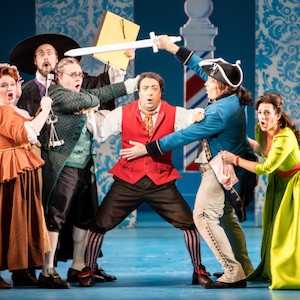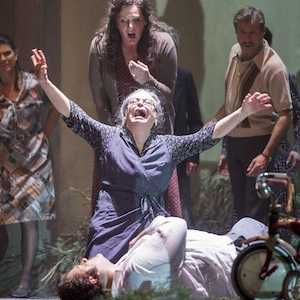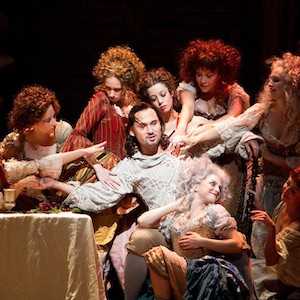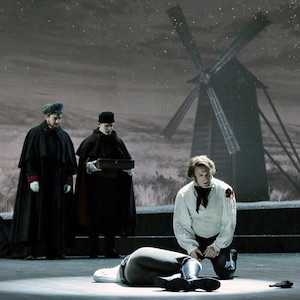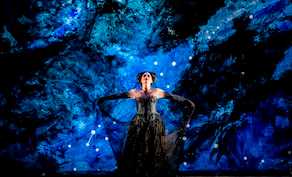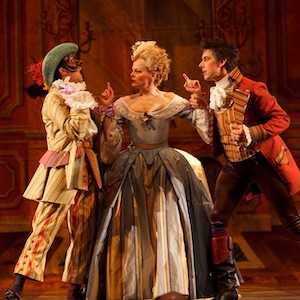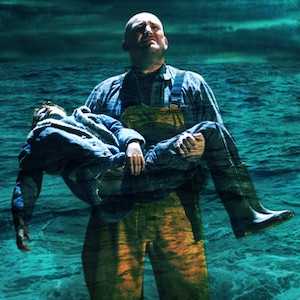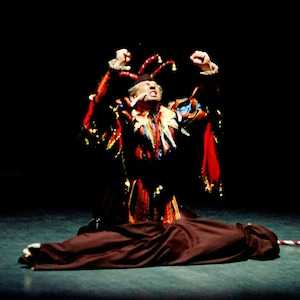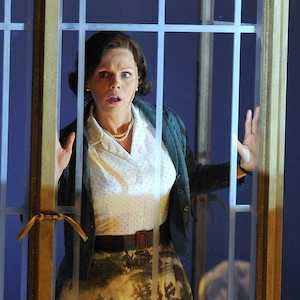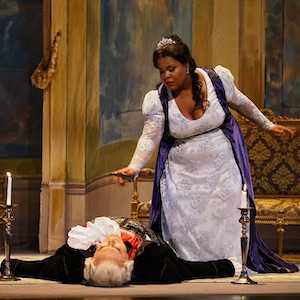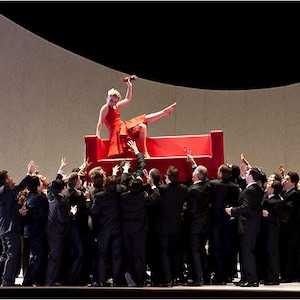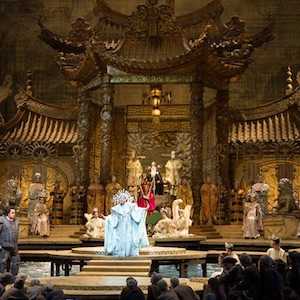Opera is when a tenor and soprano want to make love, but are prevented from doing so by a baritone.
Though it might seem like a silly question, what exactly is an opera? There's no easy answer. Michael Leiris in his work Operatics defines opera as, "any theatrical work whose basic medium is song. A wide variety of genres fall under this definition: opera strictly speaking, comic opera, light opera, operetta, musicals, lyric drama, etc." The common conception of opera might be fat women in horned helmets but the reality is it's an art form not all that easily pinned down. Il Trovatore is an opera by all accounts but what about Porgy and Bess or Sweeney Todd?
It's a difficult path to tread to elevate opera above operettas and musicals since the forms aren't readily separated. There are probably more objective differences between Birtwistle's The Minotaur and Puccini's La Fanciulla del West than the latter work and Lloyd Webber's Phantom of the Opera, yet the former two are commonly called operas and the latter a musical!
All this said, "opera strictly speaking" is not well understood, so we'll start with them!.
The Barber of Seville
Rossini
One of the more purely entertaining evenings to be had in an opera house. An archetype of opera buffa where everyone ends up smiling and singing together.
La bohème
Puccini
La bohème is an absolute warhorse of the operatic repertory, a triumphant blend of grim reality and soaring romanticism.
Carmen
Bizet
Carmen is packed with tunes you’ll already know and a dramatic narrative that ticks all the Romantic opera boxes.
Cavalleria rusticana
Bizet
Cavalleria rusticana is an intense, eighty-minute rollercoaster of an opera. A classic tale of romance, betrayal and revenge.
Don Giovanni
Mozart
A triumphant retelling of the Don Juan legend capturing all the thrill of an adventure with a dash of comedy, a dose of tragedy and a challengingly dark underpinning.
Eugene Onegin
Tchaikovsky
Eugene Onegin is a radiant example of Russian Lyric Opera. A deeply moving tale packed with big tunes, dances and a heart-stopping duel.
Madama Butterfly
Puccini
Puccini at his most restrained. A single setting, a relatively simple plot, and a strongly drawn lead pair around whom the emotionally gripping narrative spins.
The Magic Flute
Mozart
A fantastical evening full of sorcerers, heroes, magical instruments, wild animals, and special effects.
The Marriage of Figaro
Mozart
Essentially a farce, built on mistaken identities and misunderstandings centered around the upstairs/downstairs power dynamics of so many classic comedies.
A Midsummer Night's Dream
Britten
An evening of pure magic. A show that rewards repeat viewings whilst still managing to be instantly accessible. Genuinely funny and a deliciously romantic evening too.
Peter Grimes
Britten
A big opera with a very tight focus. There are huge choral scenes and a large cast of supporting players but the work holds fast to Grimes himself.
Rigoletto
Verdi
One of the most exciting and gritty operas, Rigoletto is not for the faint-hearted. The censors of the time had real issues with Rigoletto’s content and it’s not really hard to see why!
The Turn of the Screw
Britten
An operatic horror story, The Turn of the Screw is a skin crawling beauty. An exploration of innocence corrupted, a descent into despair and madness.
Tosca
Puccini
One of the most lethal of operas. None of the central characters make it to the end alive, hero or villain. Puccini takes an overtly theatrical tale and makes it astonishingly moving.
La Traviata
Verdi
One of the cornerstones of the operatic repertory. The taut plot and vivid characters paired with Verdi’s perfectly attuned music tend to result in few dry eyes by the end of Act III.
Turandot
Puccini
Turandot is Puccini’s final opera (unfinished at his death) and perhaps as a result, it is by far and away his most musically adventurous.







